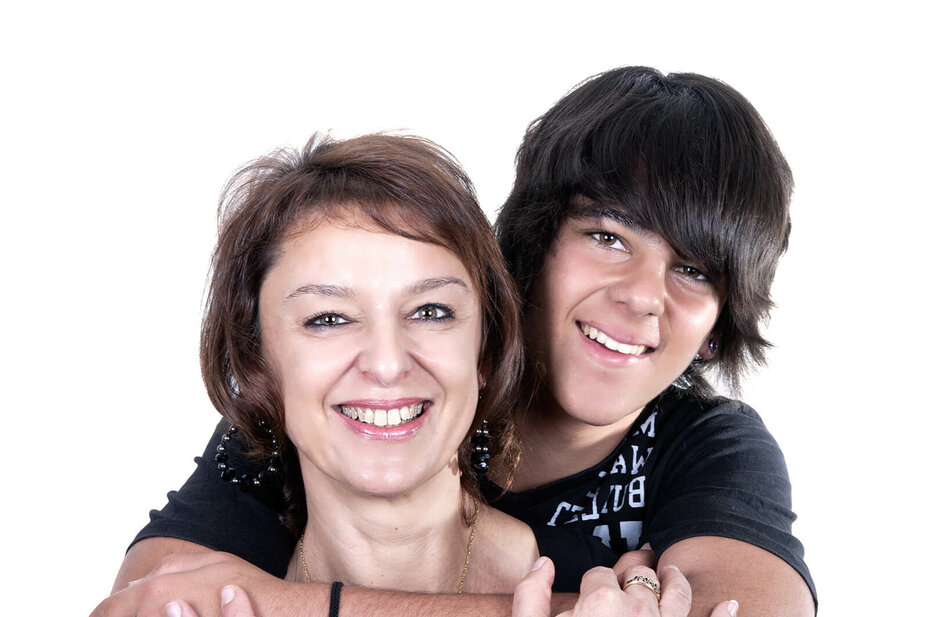TEENAGE DREAMS AND A T1 DIAGNOSIS
Today we’re excited to introduce you to Katie Janowiak, who works for the Medtronic Foundation, our company’s philanthropic arm. It’s an exciting job, helping Medtronic employees get involved in the communities and causes we care about. But today, she’s here to share something personal – her diagnosis with type 1 diabetes 15 years ago, and what she’s learned since then about living with diabetes. We can’t wait to hear more from Katie in blog posts to come!
Growing up, a generous portion of my time was devoted to a few choice activities: listening to New Kids on the Block, ensuring I had the coolest pogs, waiting for that glorious static sound that indicated a successful log on to dial up internet, and reading the entire Babysitter’s Club book series.
Long before wizards, vampire romances, and tributes were the norm in young adult reading, The Babysitter’s Club series chronicled the coming-of-age of several middle-school-aged girls as they ran a babysitting business. Stacey McGill, (a native New Yorker and “one of the best dressers of the babysitter’s club”), was diagnosed with type 1 diabetes in one of the chapter books, and for whatever reason – despite the extensive plot builds of boy drama, friend drama, drama drama – something random stuck with me: Stacey was very thirsty and peed, a lot.
I was very thirsty. I peed, a lot – so much in fact, that I couldn’t make it to a toilet on multiple occasions. When I began experiencing other similar symptoms, I told my parents, quite matter-of-factly, “I think I have diabetes.”
What a great imagination she has! Little Miss Self Diagnosis! How do you know what diabetes is? Maybe you have a cold? I think someone is about to hit puberty.
Regardless of what my parents must have been thinking, they agreed to schedule a doctor’s appointment for me – this was the day before Halloween, October 30, 1998.
From trading pogs to tapping insulin bottles in a matter of hours.
I remember friends coming to the hospital to visit. One asked me “What if you never get kissed now? Guys won’t want to get diabetes!” (I wish I could take this moment to knock some witty response into 12-year-old me. Having had fifteen years to think about it, I’m sure it would be brilliant.) The books and VHS tapes and nurses had all been extremely helpful, but no one had told me how to handle natural curiosity, or other’s lack of education surrounding type 1.
I now have a husband (who kisses me!), a fancy pink pump, and a job devoted to ensuring Medtronic employees have the tools and resources necessary to get involved in their communities around causes they care about. I look forward to sharing with you the laughter, frustration, and everything in between that fifteen years of diabetes has provided me in future posts. If a 20-something is able to impart any words of wisdom from those first moments, days and years upon diagnosis, here are mine:
- A positive attitude and a positive influencer in your diabetic’s life, can completely change the trajectory of the effect illness has on their life. Having even the fictional model of Stacey immediately made T1 “normal” to me…after all, a famous book person had it!
- The balance between “you can lead a normal life” and the “this is a part of your life where you will always be different” is a constant give and take. Almost 15 years in, I am still figuring it out.
- To parents: THIS IS YOUR CHILD’S DISEASE. Empower them to know it and own it.
- To people with diabetes: YOUR FAMILY DOES NOT KNOW WHAT IT FEELS LIKE TO BE YOU. But, they really want to support you. Understand that the questions (“Have you tested lately?” “Can you eat that?” “Ohhhh, you’re being bad”) are truly only to relate with you and to better understand your situation. Take each and every one of these as an opportunity to educate.
- Don’t tell your newly diagnosed diabetic that “it could be worse” (who wants to feel invalidated in their emotions?), but do all you can to provide a healthy sense of perspective to the disease.
Want to share your story? We are happy to hear. Contact us.
